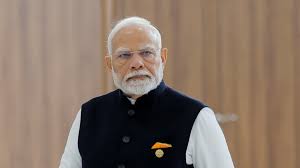Indian Prime Minister Narendra Modi has said that Pakistan will no longer receive water from rivers over which India has control. This statement came after India suspended the Indus Waters Treaty (IWT), following an incident in Kashmir on April 22.
The Indus Waters Treaty was signed in 1960 with the help of the World Bank. It allows Pakistan to use water from three rivers — the Indus, Jhelum, and Chenab — that flow through India before reaching Pakistan. This water is extremely important for Pakistan, especially for its agriculture and drinking needs.
Prime Minister Modi stated that India has the full right to use the water from these rivers and will no longer let it flow into Pakistan. This move marks a major change in a long-standing agreement between the two countries.
In response, Pakistan’s Attorney General said that Pakistan is willing to continue talks with India to resolve the issue. However, he also stressed that both countries must follow the rules of the treaty. He added that the treaty is important not just for water sharing, but also for peace and cooperation between the two nations.
The situation is being closely watched by the international community. Experts believe that any disruption in the water supply could hurt Pakistan’s agriculture and create more tension in an already strained relationship between the two countries.


